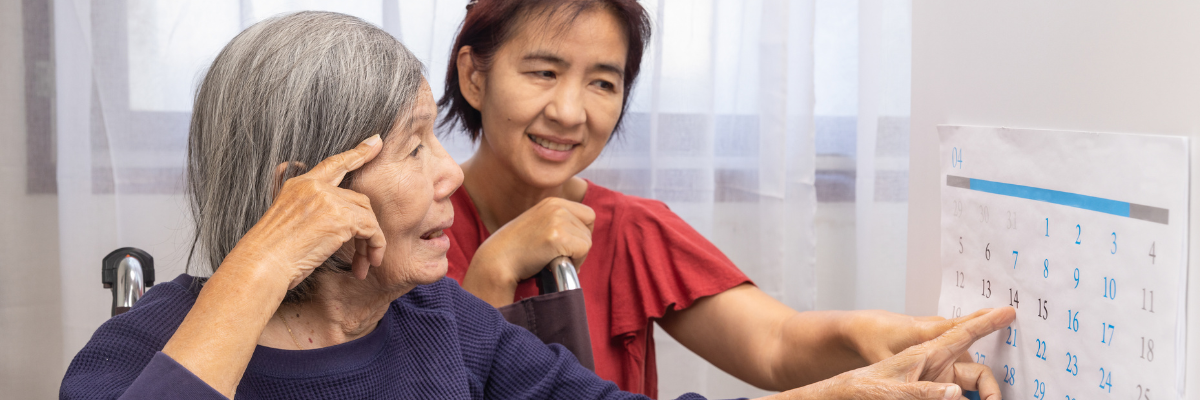Growing old isn’t something many of us like to think about, let’s be honest. But, given that dementia is the ‘most feared consequence of ageing’, it’s something we not only need to think about, we also need to be doing something about it, too.
That’s according to experts at Alzheimer’s Research UK, who say most of us aren’t doing enough to ward off the dreadful disease. Not only that – many of us don’t even realise there are a number of ways to reduce our risk of getting it later in life.
Professor Jonathan Schott, chief medical officer at the charity, said that although ‘some people are (genetically) destined to develop, we know now that up to 40% of worldwide dementia risk is potentially modifiable.’
He’s therefore encouraging more people to follow simple lifestyle tweaks, from getting enough sleep to exercising our brain, even having regular hearing tests, adding that ‘it’s vital that we do all that we can, as individuals and society, to reduce our risk.’
ZoomDoc’s Chief Medical Officer, Dr Kenny Livingstone agrees:
‘Dementia is a devastating illness, affecting as many as 1 in 6 people over the age of 80. It’s most common in the over 65s and affects almost 1 million people here in the UK. With no cure, anything we can do to prevent the onset or reduce our risk of getting it at all as we get older, is well worth doing.’
So if you’ve not given it much thought until now, read on to find out the simple steps to start taking, from tomorrow.
What exactly is dementia?
Dementia is a progressive neurological condition caused by an ‘ongoing decline of brain functioning that affects memory, thinking skills and other mental abilities’, says the NHS.
The most common form of dementia is Alzheimer’s Disease, which contributes to 60-70% of cases of the disease worldwide, reports the World Health Organization, (WHO).

Dementia is a syndrome in which there is deterioration in cognitive function beyond what might be expected from the usual consequences of biological ageing.
Dementia is more than just forgetting things as you get older. Symptoms include having problems with:
- Memory loss
- Thinking speed
- Mental sharpness and quickness
- Language, such as using words incorrectly, or trouble speaking
- Understanding
- Judgement
- Mood
- Movement
- Difficulties doing daily activities.
How to prevent dementia
The NHS has always recommended staying as healthy as possible to reduce your risk of dementia. This includes:
- Stopping smoking
- Cutting down on alcohol

To keep your mind active, it is important to participate in activities that expose your mind to new topics.
- Eating a healthy, balanced diet to maintain a healthy weight
- Staying physically fit and mentally active
But now, Alzheimer’s Research UK has gone one step further, expanding these healthy lifestyle habits into a more detailed list of steps we can all take to help prevent it.
Here’s its 12-point plan for reducing the risk of dementia or Alzheimer’s:
- Getting at least seven hours of sleep a night
- Regularly challenging the brain
- Looking after mental well-being
- Staying socially active
- Looking after your hearing
- Eating a balanced diet

Taking regular physical exercise appears to be one of the best things that you can do to reduce your risk of getting dementia.
- Staying physically active
- Quitting smoking
- Drinking responsibly
- Keeping a healthy level of cholesterol
- Maintaining healthy blood pressure
- Managing diabetes as well as possible
There’s also a handy Brain Check-In Tool that adults over 40 are encouraged to use.
When to see your doctor about dementia
If you’re worried about unusual symptoms such as memory loss, confusion, always see your doctor as soon as possible, particularly if there’s a family history of the condition.

Early diagnosis in order to promote early and optimal management
GPs can help rule out whether something else is to blame. They can also refer you to a specialist for further tests and a treatment plan, if required.
‘It can be a good idea to take someone with you who’s noticed the change in you and can help describe any unusual behaviour to the doctor,’ says Dr Kenny.
Read more about when to see your doctor (and when not to) here.
Struggling to get a GP appointment when it suits you? Download the ZoomDoc app to book an appointment with one of our doctors for just £35. Or, speed up referral to see a specialist with our medical letter service.


